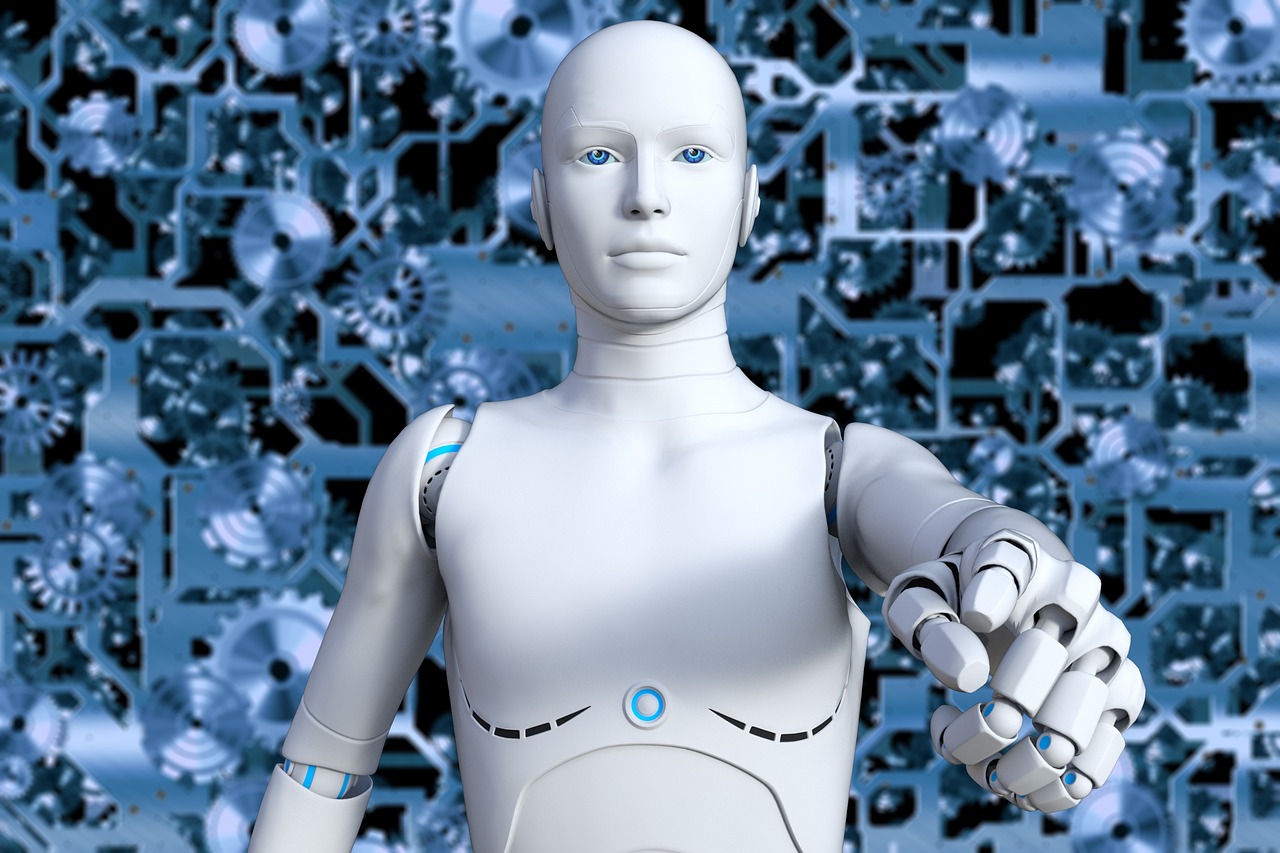The landscape of education is rapidly evolving, propelled by advancements in technology. At the forefront of this transformation is Artificial Intelligence (AI), promising to reshape how we learn, teach, and administer educational institutions. From personalized learning experiences to automated administrative tasks, AI’s potential in education is vast and transformative. This article delves into the multifaceted applications of AI in education, exploring its benefits, challenges, and the future it is forging.
AI-Powered Personalized Learning
Understanding Personalized Learning
Personalized learning, or adaptive learning, tailors the educational experience to meet individual student needs, learning styles, and paces. Traditional classroom settings often struggle to cater to the diverse learning requirements of each student. AI addresses this challenge by providing customized learning paths.
- Data-Driven Insights: AI algorithms analyze vast amounts of student data (e.g., test scores, assignment submissions, learning behaviors) to identify strengths, weaknesses, and optimal learning strategies.
- Adaptive Platforms: AI-powered platforms dynamically adjust the difficulty and content based on a student’s performance, ensuring they are always challenged appropriately without being overwhelmed.
Examples of Personalized Learning Tools
- Knewton: An adaptive learning platform that provides personalized recommendations for students based on their individual needs. It adapts to their skill level and pace of learning, ensuring they receive the right level of challenge.
- ALEKS (Assessment and Learning in Knowledge Spaces): A web-based, AI-powered assessment and learning system that uses adaptive questioning to quickly and accurately determine what a student knows and doesn’t know in a course.
- Duolingo: While primarily known for language learning, Duolingo employs AI to personalize the learning experience by adapting the difficulty and content to each user’s progress.
Benefits of Personalized Learning
- Improved Learning Outcomes: Students learn more effectively when the material is tailored to their individual needs. Studies show increased engagement and knowledge retention with personalized learning.
- Increased Engagement: Tailored content keeps students interested and motivated, leading to higher engagement rates.
- Reduced Frustration: Addressing individual learning gaps prevents students from falling behind, minimizing frustration and promoting a positive learning environment.
- Accelerated Learning: Students progress at their own pace, allowing them to master concepts quickly and move on to more advanced topics.
AI for Automated Administrative Tasks
Relieving Educators from Repetitive Tasks
Administrative tasks often consume a significant portion of educators’ time, diverting attention from core teaching responsibilities. AI offers powerful solutions for automating these tasks, freeing up educators to focus on student interaction and curriculum development.
- Automated Grading: AI-powered grading systems can automatically grade multiple-choice quizzes, essays, and even code assignments, providing instant feedback to students.
- Scheduling and Resource Management: AI algorithms can optimize class schedules, allocate resources efficiently, and manage student attendance.
- Communication and Support: AI-powered chatbots can answer frequently asked questions from students and parents, providing instant support and reducing the workload on administrative staff.
Practical Examples of AI in Administration
- Gradescope: A platform that uses AI to assist instructors in grading paper-based assignments and exams, providing automated grading and detailed analytics.
- Blackboard Assist: An AI-powered assistant that helps students navigate the Blackboard learning management system, answering questions and providing personalized support.
- Third-party Chatbots: Many educational institutions are integrating chatbots on their websites to answer student inquiries regarding admissions, course information, and support services.
Benefits of AI in Administration
- Increased Efficiency: Automation streamlines administrative processes, saving time and resources.
- Reduced Workload: Educators and administrative staff can focus on higher-value tasks, such as teaching, research, and student support.
- Improved Accuracy: AI algorithms minimize human error in grading, scheduling, and data management.
- Enhanced Student Support: Instant access to information and support through chatbots improves the student experience.
AI-Enhanced Content Creation and Curation
Transforming Educational Content
AI is revolutionizing the way educational content is created, curated, and delivered. AI tools can assist educators in developing engaging and relevant learning materials, making education more accessible and effective.
- Content Generation: AI-powered tools can generate lesson plans, quizzes, and even entire courses based on specific learning objectives.
- Content Curation: AI algorithms can analyze vast amounts of online content to identify relevant and high-quality resources for students and educators.
- Content Translation: AI translation tools can make educational materials accessible to students who speak different languages, promoting inclusivity and global learning.
Tools for Content Creation and Curation
- Quizizz: An AI-powered platform that allows teachers to create engaging quizzes and interactive lessons.
- Curriculum-focused AI Generators: Tools that can generate full lesson plans based on specific subject areas and grade levels with specified learning outcomes.
- Google Translate: While general purpose, Google Translate can effectively translate course materials and communications, allowing for more inclusive learning environments.
Advantages of AI-Assisted Content
- Time Savings: Educators can create high-quality learning materials in less time.
- Improved Content Quality: AI algorithms can ensure that content is accurate, relevant, and engaging.
- Increased Accessibility: Content translation tools make education accessible to a wider audience.
- Personalized Content: AI can help tailor content to individual student needs and learning styles.
AI for Early Intervention and Student Support
Identifying At-Risk Students
Early intervention is crucial for preventing students from falling behind and ensuring their academic success. AI algorithms can analyze student data to identify students who are at risk of struggling academically or emotionally.
- Predictive Analytics: AI models can predict which students are likely to fail a course or drop out of school based on factors such as attendance, grades, and engagement.
- Automated Monitoring: AI-powered systems can monitor student progress and flag potential issues to educators in real-time.
Providing Personalized Support
Once at-risk students are identified, AI can help provide personalized support to address their individual needs.
- Personalized Tutoring: AI tutors can provide individualized instruction and feedback to students, helping them master difficult concepts.
- Emotional Support: AI chatbots can provide emotional support and guidance to students who are struggling with stress, anxiety, or other mental health issues.
Examples of Support Systems
- Rhithm: A platform that uses AI to monitor students’ social-emotional well-being and provide personalized support.
- Woebot: An AI chatbot that provides mental health support and guidance to students.
- Personal AI Tutors: Companies are increasingly developing AI tutors that provide personalized support in STEM areas based on student performance data.
Benefits of AI in Student Support
- Early Intervention: Identifying and addressing student needs early on can prevent them from falling behind.
- Personalized Support: Tailoring support to individual student needs increases its effectiveness.
- Improved Student Outcomes: Early intervention and personalized support can improve student academic performance, emotional well-being, and overall success.
- Increased Efficiency: AI can provide support to a large number of students simultaneously, freeing up educators to focus on more complex cases.
Addressing Challenges and Ethical Considerations
Data Privacy and Security
AI in education relies heavily on data, raising concerns about student data privacy and security. It’s critical to implement robust security measures and comply with data privacy regulations to protect student information.
- Anonymization and Encryption: Data should be anonymized and encrypted to protect student identities.
- Compliance with Regulations: Educational institutions must comply with data privacy regulations, such as the Family Educational Rights and Privacy Act (FERPA) and the General Data Protection Regulation (GDPR).
- Transparency: Students and parents should be informed about how their data is being collected, used, and protected.
Bias and Fairness
AI algorithms can perpetuate and amplify existing biases if they are trained on biased data. It’s essential to ensure that AI systems are fair and equitable and do not discriminate against any group of students.
- Data Auditing: Regularly audit data to identify and correct biases.
- Algorithmic Transparency: Ensure that AI algorithms are transparent and explainable.
- Diversity and Inclusion: Involve diverse stakeholders in the development and evaluation of AI systems.
The Role of Human Educators
AI should be used to augment, not replace, human educators. Educators play a crucial role in providing mentorship, emotional support, and critical thinking skills that AI cannot replicate.
- Professional Development: Provide educators with training on how to use AI tools effectively.
- Collaboration: Encourage collaboration between educators and AI systems.
- Focus on Human Skills: Emphasize the development of human skills, such as critical thinking, creativity, and communication.
Conclusion
AI is transforming the education landscape, offering unprecedented opportunities to personalize learning, automate administrative tasks, enhance content creation, and provide early intervention and student support. While challenges related to data privacy, bias, and the role of human educators must be addressed, the potential benefits of AI in education are undeniable. By embracing AI thoughtfully and ethically, we can create a more effective, equitable, and engaging learning experience for all students, preparing them for success in the 21st century and beyond.




